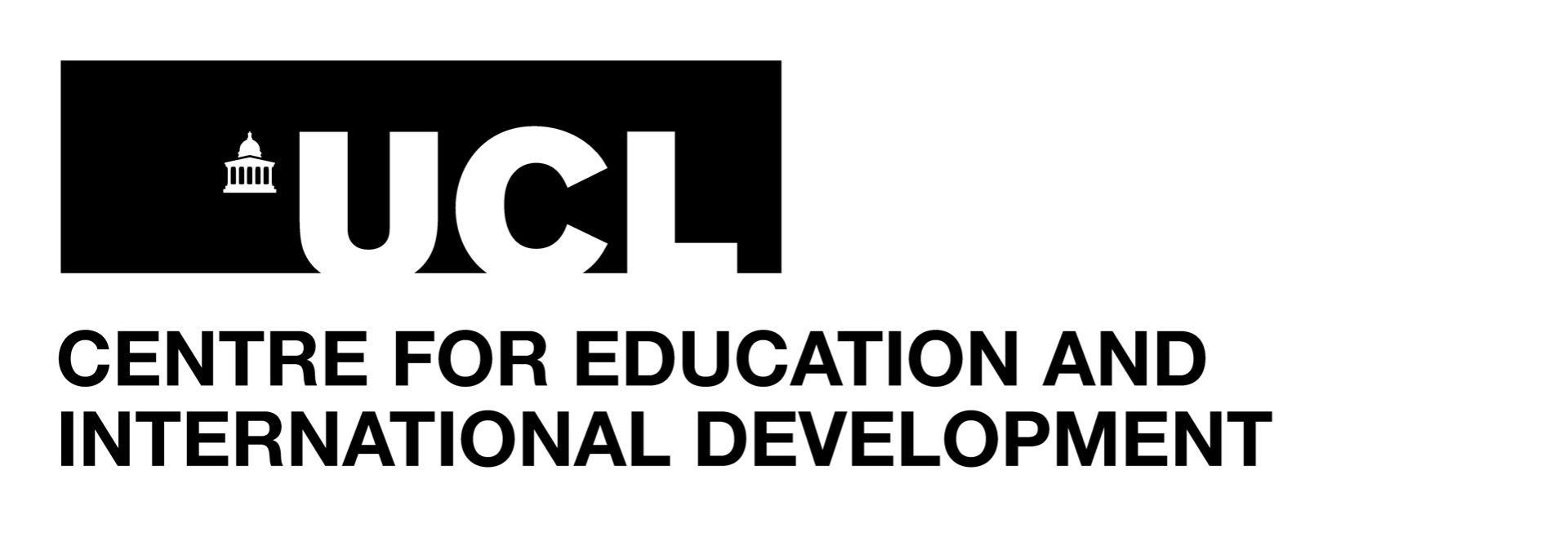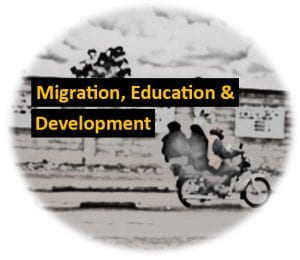Education in the Time of COVID-19 #030 – Manu
By CEID Blogger, on 22 June 2020
COVID-19 Pandemic and its Implications on Education in Ghana
The coronavirus pandemic has activated an exceptional global education emergency from which Ghana has not been spared. All schools in Ghana shut down on March 23, 2020. Statistics on Ghana’s education show that there are approximately 9.7 million (4.7 million females and 5 million males) learners affected by the COVID-19 related school closures. The decision by the Government of Ghana to shut down schools is undoubtedly a good initiative that will save lives. Nevertheless, shutting down schools raises challenging questions.
How is COVID-19 affecting learning in Ghana?
Closure of schools disrupts the academic calendar; it affects teaching and learning; and impacts negatively on low performing students. When the schools in Ghana shut down, international schools quickly moved lessons online. This was easy because most children from such schools come from middle or high income households and have access to laptops and smart phones. By contrast, learners from basic and senior high schools (SHS), particularly under the Ghana Education Service (GES), could not continue their studies because online education was not readily available. COVID-19 has revealed some of the flaws of the education system and exposed the GES unpreparedness for continuity in education in times of humanitarian and health crises.
In response to this education crisis, the Ministry of Education (MoE) and GES identified that the existing, appropriate, and accessible infrastructure for delivering education was through the radio, television (TV) and internet. The GES envisaged that radio would have a wider coverage within the country and it could help to bridge the gap on access. One critique, of such an approach, is that radio can be an ineffective tool in delivering content. Learning via the TV can resolve some of these challenges; however, this platform also has some challenges. Children living in underserved communities without electricity supply and children from impoverished households usually do not have a TV. Besides, content does not benefit all learners at a particular point in time as lessons are scheduled for all levels. The GES has reported that all SHS students (approximately 1.2 million) have been registered on the iCampus system, allowing them to do self-guided learning online. One major challenge with online learning is internet inaccessibility for some communities and households especially those without access to electricity. Also, not all children have access to smart phones or personal laptops and data can be quite expensive.
At the tertiary level, most institutions, such as University of Ghana, University of Cape Coast, University of Professional Studies, and some Technical Universities decided to continue the semester on virtual platforms. These virtual platforms became relevant and ensured that there were no disruptions in the semester. There were still some challenges. Some students from remote areas did not have access to electricity or stable internet connection so could not join lectures held over the internet. Even in the cities, there are communities that do not have stable internet connection. Lastly, some learners could not afford to join online lectures regularly as data is quite expensive. As a result of these challenges, some of these institutions had to suspend online education until further notice from the government.
Are final year students able to graduate?
COVID-19 has not only disrupted learning in schools, it has also disrupted the writing of external examinations in Ghana. At the basic level, pupils sit the Basic Education Certificate Examination (BECE), which allows them entry into the senior high schools, and students at the senior high level sit the West African Senior Secondary Certificate Examination (WASSCE), which qualifies them into the tertiary institutions. The BECE and WASSCE were scheduled to take place between March and June, but they have been suspended until further notice from the government. The implication of the suspension of these external examinations is that admissions into the senior high schools and tertiary institutions will be delayed and graduation of final year students at the tertiary institutions will also be deferred.
How are children who were beneficiaries of the school feeding programme faring at home?
The Ghana School Feeding Programme (GSFP), which benefits over 1.7million children in over 5000 public schools across Ghana, has been suspended as schools shut down. We cannot underestimate the role of the GSFP. It has helped reduce hunger among children coming from impoverished households and increased enrolment and attendance in public schools. It has also reduced some financial burden on the parents of the beneficiaries. In the interim, it is likely that some of these parents may not be in the position to provide three meals for their children every day. This also means that children who benefit from the GSFP are at a high risk to face hunger, become malnourished, experience psychological stress, and not engage in the distance education offered to all children.
Are girls safe at home during this pandemic?
The school as an institution is often the only safe space for some vulnerable children especially girls. Millions of girls and young women especially from least developed countries are at risk because of the closure of schools. In Ghana, like in many other societies in Africa, girls and women are in charge of almost all the domestic work at home. The domestic burden on women and girls will likely increase as people have been confined at home. Girls are also tasked with the responsibility of taking care of their younger siblings at home and responsible for taking care of ill family members. Without doubt, some girls will not be able to engage or participate fully in e-learning or distant learning programmes, negatively impacting their academic performance. Home confinement also puts vulnerable girls at a higher risk of domestic violence. An increase in teenage pregnancies during this period is expected which in turn will affect girls’ school enrolment and attendance once school reopen.
How have teachers working in private schools been affected?
Private school teachers in particular were affected due to the sudden shutdown of schools. The Government of Ghana continued to pay the salaries of public school teachers but that was not the case for staff in private schools. The latter predominantly depend on school fees and other forms of parental contributions (e.g. feeding fees) to pay their staff. Proprietors who run these private schools, teachers and other auxiliary staff struggle to take care of themselves and their families during the crises.
Recommendations
The MoE needs to learn from the current experience and build an education system that ensures continuity in times of crises. In view of the challenges that come with e-learning platforms like radio, TV and internet, MoE and GES should look into cost effective and accessible platforms for all learners. TV may be the best option for Ghanaians as it is easily accessible in communities that have electricity. Learning through the TV can benefit almost all learners as it involves both audio and visual, and lessons can include sub titles and sign languages to benefit all learners. It will also be prudent to have multiple channels for all levels and departments in order to increase the engagement of learners. One may argue that a home that has only one TV for two or more children who are at different levels may not be able to benefit from watching the TV at the same time. To address this issue, the government should intensify the initiative of providing cost effective laptops or tablets (with preinstalled electronic textbooks and activities) to learners from impoverished households and underserved communities.
At the tertiary level, universities and the government should initiate schemes to provide learners with personal computers for free or at a reduced cost. It is crucial for universities to move to a digitalised system where it is possible for learners to access course materials, join virtual classrooms, and be able to sit examinations in the comfort of their homes. To a greater extent, Ghana needs to increase the electricity supply to all communities.
With regards to the external examinations, it may not feasible for students to sit them online until the technological infrastructure is enhanced. As such, only final year students should be allowed to go back to school for final examinations under strict hygienic conditions. This will reduce congestion in classrooms and boarding houses, minimizing the spread of the virus. If the number of COVID-19 cases in Ghana continues to rise and become uncontrollable, then the government must postpone external examinations.
On girls’ education and safety, the Ministry of Gender, Children and Social Protection (MoGCSP), MoE and GES should sensitize the public on the need to ensure that girls continue to benefit from the distance education. The public needs to understand that domestic work at home should be divided equally among all members in the household. As domestic violence during this period may rise, it is imperative to teach the public on how to deal with cases of domestic violence. The Domestic Violence and Victim Support Unit(DOVVSU) should publish telephone numbers where children, parents and guardians can call to report issues of violence. These public information efforts should be aired on radio and TV, in English and local languages with appropriate subtitles and sign language. Post COVID-19, these information programmes should continue to reduce domestic violence in Ghana.
The government should introduce schemes to support private school teachers. In the interim, the government could give out small loans to private school teachers to ease their financial stress. Post COVID-19, private school teachers must be encouraged to engage in other entrepreneurial activities that will provide them some stability in times of crises.
Finally, MOE, GES and heads of institutions should begin to look into ways to ensure social distancing and hygiene protocols when schools finally reopen. This is the perfect time to invest in medical and Water, Sanitation and Hygiene (WASH) supplies for schools. At the tertiary institutions, it should be easy to maintain and ensure hygienic protocols because most of the learners are adults and can take care of themselves. At the basic and SHS level where classrooms and boarding houses are often congested (especially in public schools), it may be challenging to introduce and maintain social distancing and strict hygiene protocols. MoE should begin a WASH series or campaign on radio and TV for children on how social distancing and hygiene protocols should be observed in the classrooms and boarding houses.
The COVID-19 pandemic raised many questions for the education system in Ghana. Creating a solid education system that also supports the impoverished will help eradicate the inequalities that persist in education in Ghana.
Ruth Oparebea Manu, 2018/19 Chevening Scholar, works with the Educational Development Projects (EDP) Trust as Projects Manager in charge of Communications, Public Relations and Monitoring.
Opinions expressed on the CEID Blog are only those of the author, not the Centre for Education and International Development or the UCL Institute of Education.
Want to publish a blog post? Send us a submission or idea.
One Response to “Education in the Time of COVID-19 #030 – Manu”
- 1
 Close
Close






[…] 5. Ruth Oparebea Manu – Project Manager, Educational Development Projects Trust […]